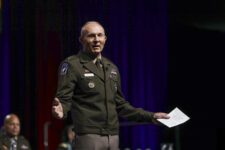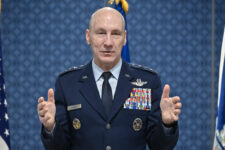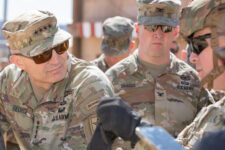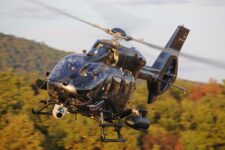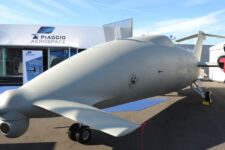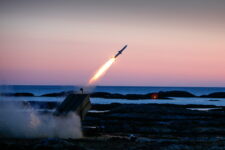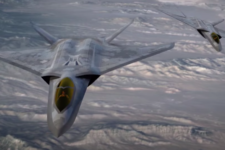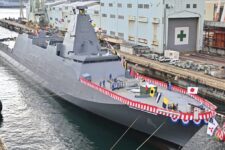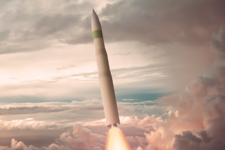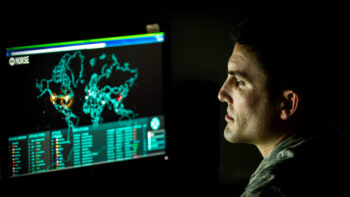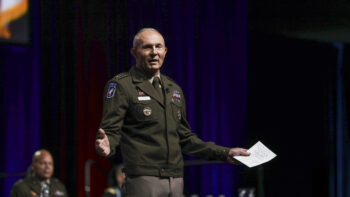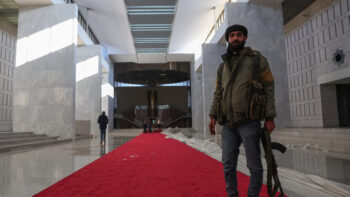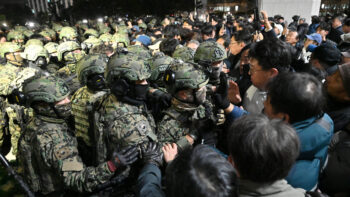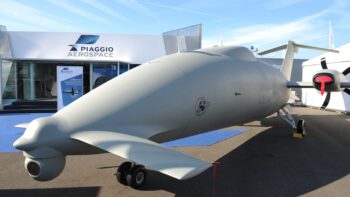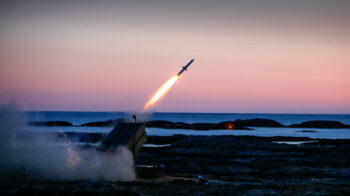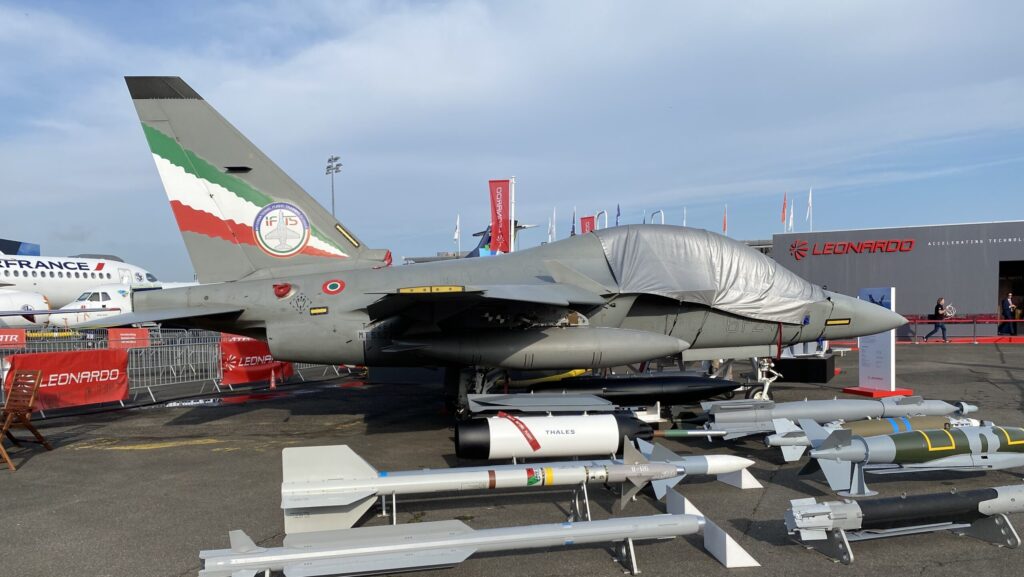
The M-346, produced by Leonardo, showed off some of its weapons options at the 2023 Paris Air Show. (Aaron Mehta/Breaking Defense)
WASHINGTON — Austria has taken the next step in shoring up its small and aging fleet of jet fighters, with the formal announcement that Vienna will procure 12 Leonardo M-346FA aircraft.
The announcement, made by Defense Minister Klaudia Tanner on Dec. 28, had been been anticipated for months. It comes four years after the neutral nation retired its Swedish-built Saab 105 trainers. The M-346 model selected is light fighter variant of the Italian firm’s jet, which is best known as an aircraft trainer.
Austria will buy the jets from the Italian government under a government-to-government contract whose details are still under negotiation, the Bundesheer announcement said. While the timeline and pricing for the purchase remain unclear, the Austrian government budgeted 1 billion Euros (currently just over $1 billion US) for the purchase in 2022. Leonardo declined to comment for this article.
Until the M-346s begin arriving, the Austrian Air Force’s only combat aircraft are 15 Eurofighters, according to a Flight Global database [PDF] — six of them purchased second-hand from the German Luftwaffe and all of them in the barebones Tranche 1 configuration. (The latest Eurofighter upgrade is Tranche 4).
The twin-engine M-346 is a significantly lighter aircraft than the Typhoon, albeit heftier than the 1960s-vintage Saab 105s it replaces. The M-346 first flew in 2004 as an advanced training aircraft, but like many trainers it can be configured for air defense or ground attack as well. It is currently operated by Italy, Poland, Singapore, Israel, Greece and Qatar, and Leonardo is pitching the aircraft aggressively both to Latin American nations and to the US Navy to replace its aging T-45.
The M-346 is also used by the Italian-run International Flight Training School, where Austrian jet pilots have trained since the Saabs were retired. That training will return to Austria once the nation has its own M-346s, Tanner said in her announcement.
“By purchasing the jets, we are closing a significant capability gap in our air force,” Tanner said, according to an online translation of her German statement. “In this way, we are not only bringing 100 percent of the training of our pilots back to Austria, but we are also significantly strengthening airspace defense. This increases the protection of Austria, the Austrian population and our neutrality against threats from the air.”
Replacing the Saabs will also shore up the military value of Vogler Air Base and protect local jobs, Tanner said.
